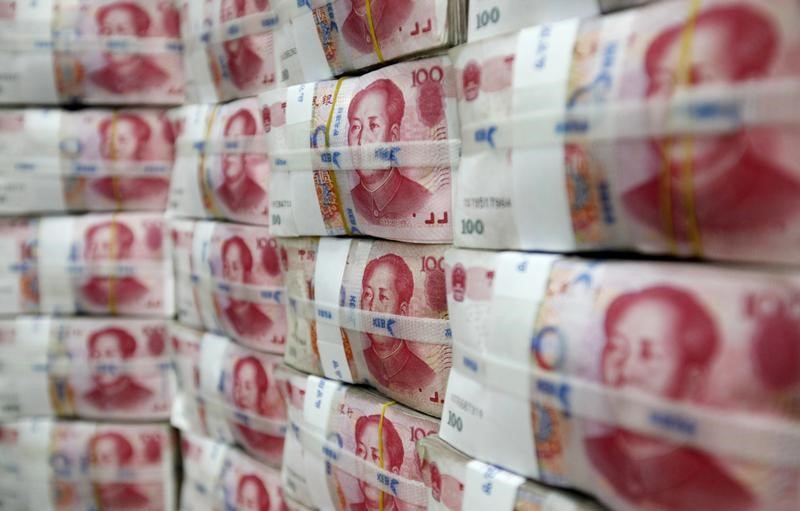BEIJING (Reuters) - A surge of new loans granted in China over the first quarter does not mean the country is about to embark upon another massive economic stimulus programme, the official Xinhua news agency said in a commentary on Monday.
China last month posted its slowest economic growth since 2009 but a surge of new debt appears to be fuelling a recovery in factory activity, investment and household spending in the world's second largest economy.
Official data in April showed China's gross domestic product grew at an annual rate of 6.7 percent in the first quarter of the year, easing slightly from 6.8 percent in the fourth quarter as expected. However, other indicators released showed new loans, retail sales, industrial output and fixed asset investment were all better than forecast.
Chinese banks extended 1,370 billion yuan (144.4 billion pounds) in net new yuan loans
But the sudden rise prompted concerns that Beijing is falling back on methods it used to get out of the global financial crisis: massive spending on infrastructure, real estate, and industrial capacity that produced low or no returns but saddled Chinese banks with non-performing loans.
Local government financing vehicles (LGFVs), which Chinese cities use to circumvent official spending limits, raised at least 538 billion yuan in bonds in the first quarter, up 178 percent from a year earlier and the highest quarterly issuance since June 2014, Everbright Securities said, quoting figures from privately held financial data provider WIND.
Xinhua, in an English-language piece, said the loans data had "fanned speculation that the government may turn to a massive stimulus programme, a move that would pose a risk to global financial market".
But adopting an "accommodative policy" to help slowing growth was normal and China would keep doing it, Xinhua said.
"China will not resort to large stimulus measures; policymakers are more than aware of the consequences of such a short-sighted programme. Moreover, the country is still addressing the side effects of the previous stimulus package, such as overcapacity," it added.
Such commentaries are not official policy statements, but can be read as a reflection of government thinking.
Xinhua said the rapid increase in loans was temporary.

"All in all, resorting to massive lending to boost the economy is like quenching a thirst with poison. Those who fear a large-scale stimulus can rest assured."